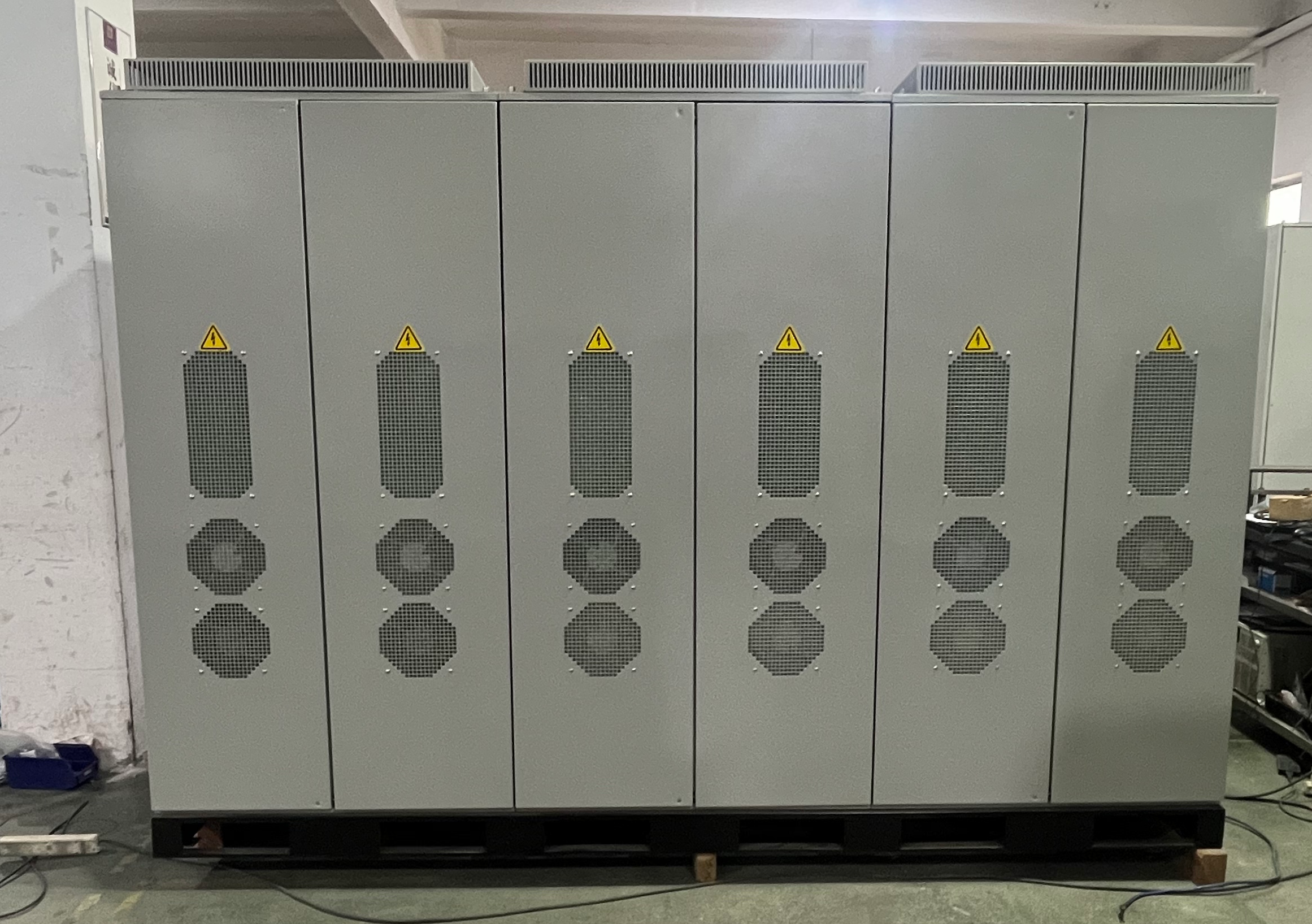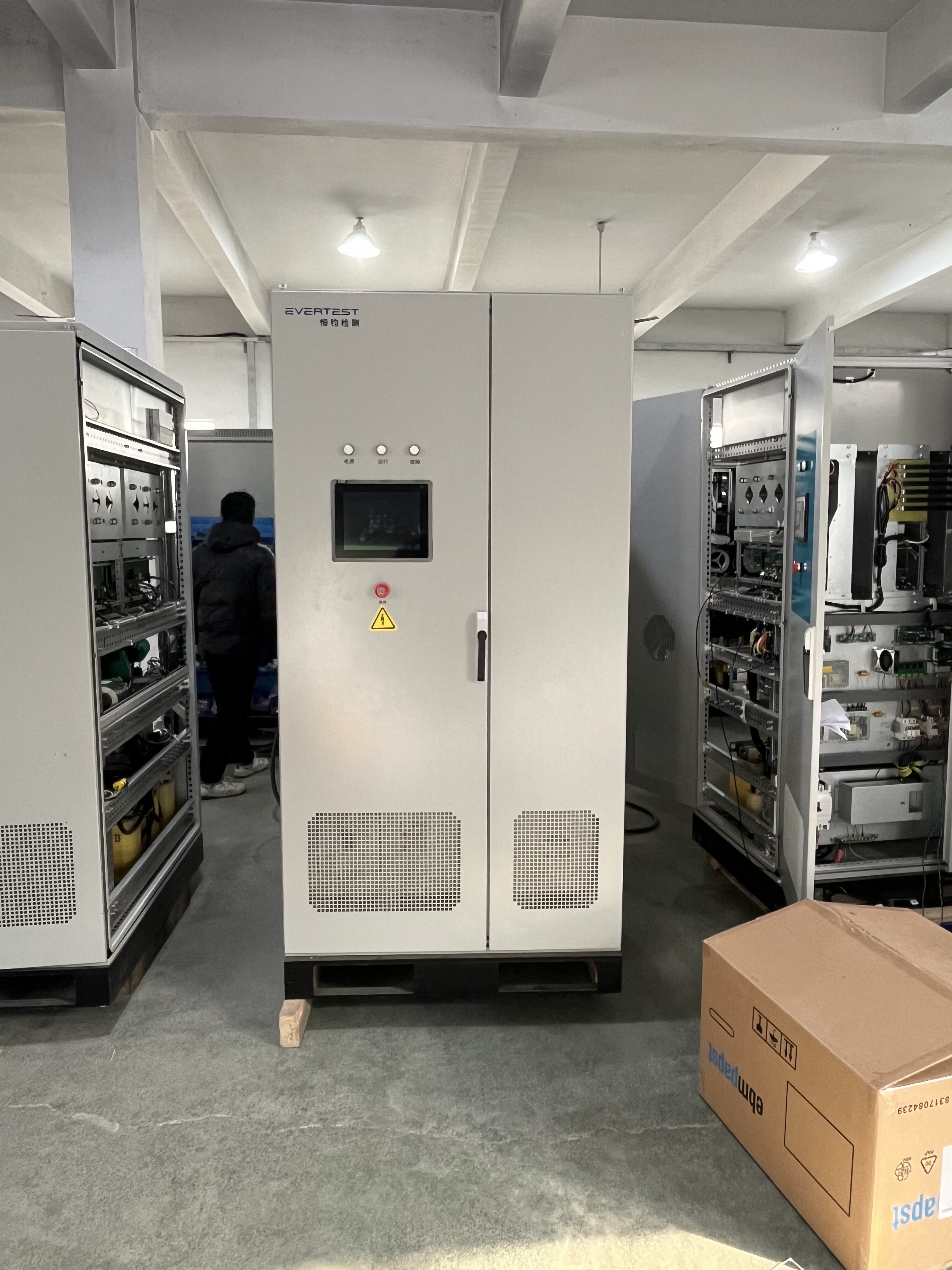Memahami Kekuatan Teknologi Arus Konstan dalam Industri Modern
Dalam dunia peralatan industri dan proses manufaktur yang terus berkembang, arus konstan sumber arus konstan telah menjadi komponen penting yang mendorong ketepatan, efisiensi, dan keandalan. Sistem pasokan daya yang canggih ini mempertahankan aliran listrik yang stabil terlepas dari perubahan resistansi beban, menjadikannya sangat penting untuk berbagai aplikasi industri. Penerapan arus konstan sumber arus konstan telah merevolusi cara peralatan industri beroperasi, memastikan kinerja yang konsisten serta melindungi komponen sensitif dari fluktuasi arus.
Kebutuhan sektor industri akan kontrol arus yang presisi semakin meningkat, sehingga mendorong adopsi sumber arus konstan secara luas di berbagai jenis peralatan. Dari sistem laser hingga proses elektroplating, solusi daya ini telah terbukti menjaga keunggulan operasional dan kualitas produk. Memahami di mana dan bagaimana menerapkan sumber arus konstan dapat secara signifikan meningkatkan efisiensi proses industri serta fungsionalitas peralatan.

Aplikasi Utama dalam Manufaktur dan Pemrosesan
Sistem Laser Presisi dan Peralatan Optik
Salah satu aplikasi yang paling kritis dari sumber arus konstan terdapat pada sistem laser industri. Perangkat ini memerlukan suplai daya yang sangat stabil untuk mempertahankan intensitas dan kualitas berkas yang konsisten. Peralatan pemotongan laser, pengelasan, dan penandaan bergantung pada sumber arus konstan untuk memastikan operasi yang presisi dan hasil yang dapat diulang. Aliran arus yang stabil mencegah fluktuasi daya yang dapat menyebabkan kedalaman pemotongan atau kualitas las yang tidak konsisten.
Pada peralatan optik, sumber arus konstan memberi daya pada array LED dan dioda laser yang digunakan dalam sistem pencitraan dan pengukuran industri. Arus yang konsisten menjamin keluaran cahaya yang stabil, yang sangat penting untuk inspeksi kontrol kualitas yang akurat serta pengukuran dimensi dalam lingkungan manufaktur.
Sistem Elektroplating dan Perlakuan Permukaan
Proses elektroplating industri membutuhkan pengendalian arus yang tepat untuk menghasilkan ketebalan dan kualitas lapisan yang seragam. Sumber arus konstan mengatur proses elektrodeposisi, memastikan laju deposisi logam dan sifat lapisan tetap konsisten. Tingkat pengendalian ini sangat penting dalam industri yang memproduksi komponen elektronik, suku cadang otomotif, dan lapisan dekoratif.
Aplikasi perlakuan permukaan, termasuk anodizing dan electropolishing, juga memperoleh manfaat dari teknologi arus konstan. Proses-proses ini membutuhkan kondisi arus yang stabil untuk mencapai sifat permukaan yang diinginkan serta mencegah terjadinya cacat yang dapat mengurangi kualitas atau kinerja produk.
Aplikasi Peralatan Ilmiah dan Penelitian
Sistem Pengujian dan Analisis Laboratorium
Fasilitas penelitian dan laboratorium industri menggunakan sumber arus konstan dalam berbagai instrumen analitis. Peralatan spektroskopi, sebagai contoh, memerlukan arus yang stabil untuk mempertahankan intensitas sumber cahaya yang akurat dalam analisis material. Ruang uji lingkungan dan sistem penuaan dipercepat juga mengandalkan sumber arus konstan untuk memastikan kondisi pengujian yang konsisten dan hasil yang dapat diandalkan.
Dalam peralatan uji semikonduktor, sumber arus konstan memainkan peran penting dalam karakterisasi perangkat dan pengendalian kualitas. Sumber daya listrik ini memungkinkan pengukuran parameter komponen elektronik secara tepat, memastikan kepatuhan terhadap standar dan spesifikasi industri.
Fasilitas Penelitian dan Pengembangan
Laboratorium R&D menggunakan sumber arus konstan dalam pengembangan prototipe dan pengujian material. Sumber daya ini mendukung setup eksperimental yang memerlukan kondisi arus stabil selama periode yang lama. Keandalan dan ketelitian sumber arus konstan menjadikannya alat yang sangat berharga dalam pengembangan proses industri dan produk baru.
Peralatan penelitian canggih, seperti mikroskop elektron dan akselerator partikel, bergantung pada sumber arus konstan untuk operasi yang stabil. Instrumen canggih ini memerlukan kontrol arus yang presisi untuk mempertahankan stabilitas berkas dan menghasilkan data akurat.
Peralatan Pembangkit dan Distribusi Daya
Sistem Pengisian Baterai Industri
Sistem pengisian baterai industri berskala besar menggunakan sumber arus konstan untuk mengoptimalkan siklus pengisian dan memperpanjang umur baterai. Sumber daya ini memastikan proses pengisian yang terkontrol untuk berbagai teknologi baterai, mulai dari baterai asam-timbal hingga baterai lithium-ion yang digunakan dalam peralatan industri dan sistem cadangan daya.
Fase pengisian dengan arus konstan sangat penting untuk menjaga kesehatan baterai serta mencegah kerusakan akibat pengisian berlebihan. Sistem pengisian canggih menggunakan sumber arus konstan yang dapat diprogram untuk menerapkan algoritma pengisian yang kompleks sehingga memaksimalkan kinerja dan daya tahan baterai.
Sistem Kontrol Distribusi Daya
Dalam jaringan distribusi daya, sumber arus konstan digunakan dalam peralatan proteksi dan sistem kontrol. Perangkat uji injeksi arus menggunakan sumber daya ini untuk memverifikasi operasi relay proteksi dan pemutus sirkuit. Output arus yang stabil memastikan pengujian dan kalibrasi komponen kritis sistem daya secara akurat.
Teknologi jaringan cerdas semakin bergantung pada sumber arus konstan untuk sistem sensor dan peralatan pemantau. Perangkat-perangkat ini membantu menjaga stabilitas jaringan dan memungkinkan pengukuran kualitas daya yang akurat di fasilitas industri.
Komunikasi dan Infrastruktur Jaringan
Sistem Serat Optik
Jaringan serat optik industri bergantung pada sumber arus konstan untuk memasok daya ke pemancar dan penerima optik. Arus yang stabil memastikan kekuatan sinyal optik yang konsisten dan transmisi data yang andal di seluruh fasilitas manufaktur dan kompleks industri. Sumber daya ini membantu menjaga integritas komunikasi dalam lingkungan industri yang menantang, di mana gangguan elektromagnetik dan masalah kualitas daya umum terjadi.
Peralatan uji serat optik canggih juga menggunakan sumber arus konstan untuk kalibrasi dan verifikasi kinerja. Instrumen ini memerlukan kontrol arus yang presisi untuk mencapai pengukuran tingkat daya optik dan kualitas sinyal yang akurat.
Peralatan Jaringan Industri
Infrastruktur jaringan dalam lingkungan industri sering kali membutuhkan pasokan listrik yang stabil untuk kinerja optimal. Sumber arus konstan memberi daya pada switch jaringan, router, dan perangkat ethernet industri, memastikan operasi yang andal dalam kondisi lingkungan yang keras. Aliran arus yang konsisten membantu melindungi komponen jaringan sensitif dari masalah terkait daya yang dapat mengganggu operasi industri.
Perangkat dan sensor IoT industri secara sering menggunakan sumber arus konstan dalam sistem manajemen daya mereka. Komponen ini memungkinkan operasi stabil perangkat pemantauan dan kontrol di seluruh lingkungan industri yang terhubung.
Pertanyaan yang Sering Diajukan
Bagaimana sumber arus konstan meningkatkan keandalan peralatan industri?
Sumber arus konstan meningkatkan keandalan peralatan dengan menyediakan kondisi daya yang stabil guna mencegah tekanan dan kegagalan komponen. Sumber arus ini melindungi elektronik sensitif dari fluktuasi arus dan memastikan operasi yang konsisten pada berbagai kondisi beban, pada akhirnya memperpanjang umur peralatan serta mengurangi kebutuhan pemeliharaan.
Faktor-faktor apa saja yang perlu dipertimbangkan saat memilih sumber arus konstan untuk aplikasi industri?
Faktor-faktor utama dalam pemilihan meliputi rentang arus yang dibutuhkan, kepatuhan tegangan, spesifikasi ketelitian, waktu respons, serta kondisi lingkungan. Selain itu, pertimbangkan fitur perlindungan catu daya, kemampuan pemrograman, dan kompatibilitas dengan sistem kontrol industri yang sudah ada.
Apakah sumber arus konstan dapat diintegrasikan dengan sistem kontrol industri yang sudah ada?
Ya, sumber arus konstan modern sering kali dilengkapi dengan antarmuka digital yang memungkinkan integrasi dengan PLC, sistem SCADA, dan platform kontrol industri lainnya. Integrasi ini memungkinkan kontrol otomatis, pemantauan, dan pencatatan data proses yang bergantung pada arus listrik.
Apa saja persyaratan pemeliharaan untuk sumber arus konstan industri?
Meskipun sumber arus konstan pada umumnya andal, sumber tersebut memerlukan kalibrasi berkala, pemeriksaan sistem pendingin, dan verifikasi fitur perlindungan. Pemeliharaan rutin memastikan akurasi dan kinerja tetap terjaga dalam lingkungan industri yang menuntut.
Daftar Isi
- Memahami Kekuatan Teknologi Arus Konstan dalam Industri Modern
- Aplikasi Utama dalam Manufaktur dan Pemrosesan
- Aplikasi Peralatan Ilmiah dan Penelitian
- Peralatan Pembangkit dan Distribusi Daya
- Komunikasi dan Infrastruktur Jaringan
-
Pertanyaan yang Sering Diajukan
- Bagaimana sumber arus konstan meningkatkan keandalan peralatan industri?
- Faktor-faktor apa saja yang perlu dipertimbangkan saat memilih sumber arus konstan untuk aplikasi industri?
- Apakah sumber arus konstan dapat diintegrasikan dengan sistem kontrol industri yang sudah ada?
- Apa saja persyaratan pemeliharaan untuk sumber arus konstan industri?



